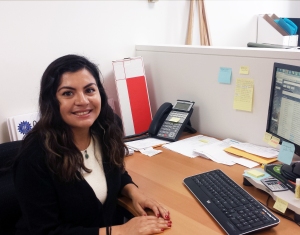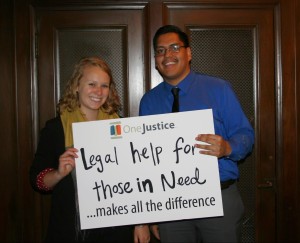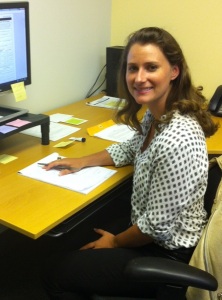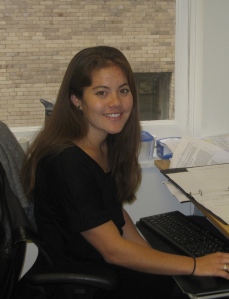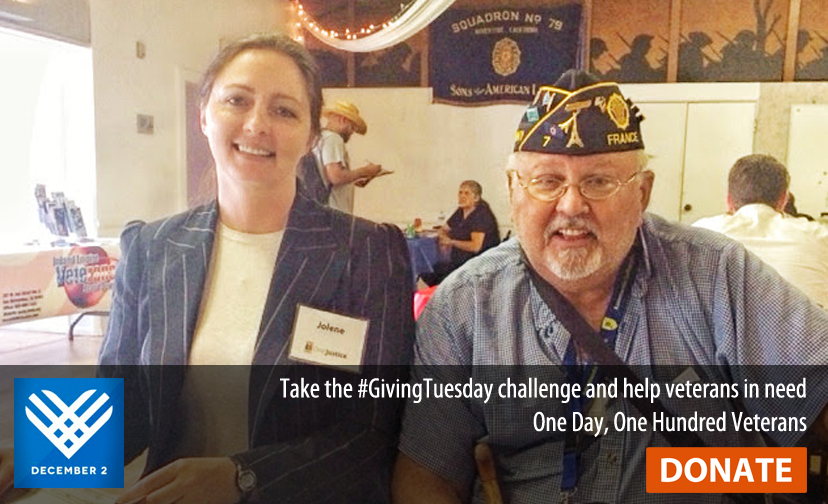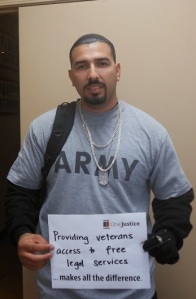California is my home.
Finally my parents and I can live here without fear.
For the past 6 months, OneJustice has been so honored to serve as the host site for two amazing DreamSF Fellows, Jesus Castro and Talissa Carrasco. Talissa and Jesus have become an integral part of the Rural Justice Initiative, conducting vital outreach to isolated communities and providing essential staffing for Justice Bus and Rural Justice clinics. When the President recently announced the expansion of the “deferred action” immigration relief, we asked Talissa for her perspective on the new programs.
. . . . . . . . . . . . . . . . . . . . . . . . . . . . . . . . . . . . . . . . . . . . . . . . . .
From living in fear to planning for law school
Guest Blog post by Talissa Carrasco, a DreamSF Fellow at OneJustice
Hello, my name is Talissa Carrasco and I am a DreamSF Fellow at OneJustice. In 2013, I was granted DACA (Deferred Action for Childhood Arrivals), and since then my life has improved tremendously.
Before DACA, I used to live with so much fear. Fear that my American friends wouldn’t accept me for being undocumented, fear that they would judge me as an “illegal alien,” fear that my teachers would treat me differently and place me in ESL classes, and fear that one day my family or I would be deported back to Peru. This fear drove to me to reject my roots as a child. For years, I struggled to find my identity, where I belonged, and whether I was Peruvian or American. Technically, I was Peruvian, but I only spent 2 years of my life in Peru and have spent the last 22 years in the US.
California is my home. It’s where I went to elementary school, it’s where I went to middle school and high school, it’s where I am attending college, and where I will be going to law school.
Since being granted DACA, I transferred to U.C. Davis, where I am now in my senior year completing my B.A. in Political Science, and upon graduation, I will apply for law school. I now have a driver’s license which helps with my commute to Davis, and I have a job doing what I love — serving underrepresented and low income communities that desperately need legal services.
I had the option of choosing between 13 different nonprofit organizations where I would be working to develop my professional skills. One of the first things that captivated me about OneJustice was the work they do. Having lived in many different urban cities, I’m thankful for always having had access to resources. Unfortunately that is not the case for everyone. I have an older sister who lives in Eureka who is also a DACA recipient and who is in need of legal aid to help renew her DACA. But, because the legal resources in Humboldt County are so scarce, I was unable to find her an attorney that she can afford or that is nearby.
With the recent news released by President Obama on Administrative Relief, I am grateful that my parents will finally be able to obtain legal status after living 22 years in this country undocumented, struggling to work and provide a better life for our family. Filling out DACA on my own was quite a challenge. Because of the challenge I faced, I know my parents will need legal assistance in applying for administrative relief. There are millions of families – just like my parents – who will need legal assistance to determine if they qualify for administrative relief as well as to help them apply.
Since starting at OneJustice, I have been on 13 Justice Bus trips to serve rural counties that really need the legal assistance. This is why I chose to work at OneJustice, because the next community we serve may be one my sister lives in and that means a lot to me.
I chose this path so that I would be able to give back to my community, to give back to those who have helped me reach success. My goal is to serve as a role model for future generations of immigrant children and inspire ethnic students to succeed. My ambition gives me determination to fight for immigrants in this country, and DACA has paved that way for me. With DACA, I am no longer afraid to speak out about being undocumented.
